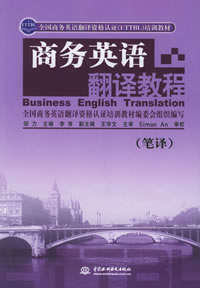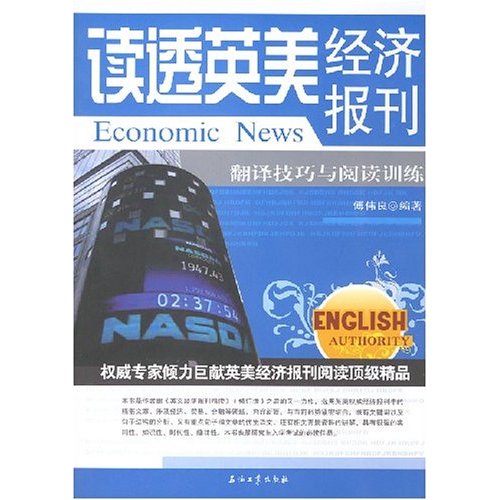Getting Started as a Translator:Gleanings from Honyaku (第一部分)
作者:古龙 2009-07-04




语际翻译公司 转载请注明https://www.scientrans.com
∗本栏目部分文章内容来自互联网,部分已经过本站编辑和整理,如有版权事宜请联系Email/MSN jesczhao@hotmail.com
On February 1, 1996, the following question was posted to the Honyaku mailing list from a person in the United States:
Dear Honyakkers,
I am trying to get started as a part-time, freelance translator. I have never translated for money before but I feel confident in my abilities (at least for J>E). I have made several inquiries including letters to translation agencies in my town and trying to register with a couple of companies I've found on the World Wide Web. So far no reply. I even spoke to the owner of a translation agency here. When I told him that I had two years of college Japanese and lived in Japan for a year, he essentially told me "good luck" and hung up. It's beginning to look like one of those "need a job to get experience, but can't get a job without experience" Catch-22's that everyone hates....
In any case, I do have a couple of specific questions. First, do you recommend sending samples of my Japanese writings with my resume? Second, should I go ahead and buy translation tools such as technical dictionaries and name dictionaries before I find work? And third, does anyone know of any translation agency that will give a newcomer a chance to do freelance work?
________________________________________
The following are excerpts from some of the replies.
________________________________________
I realize that you would prefer to work freelance at home. But from my own experience, I recommend that you go to work in somebody's office somewhere as an in-house translator, preferably where there are more experienced translators who can help you along. Then, after a couple of years you can strike out on your own.
David Farnsworth
________________________________________
I recommend that you go to work in-house for a company as a translator. It doesn't necessarily need to be in the translation business. I started out working for a Japanese automaker, and cut my teeth by interpreting in 8-hour business meetings in (literally) smoke-filled rooms and other abominable working conditions. The main reason for my recommendation, however, is the financial security it affords. Have you considered that [in the United States] you will be paying an extra 8% in social security taxes if you go freelance? I've been freelancing for many years and maintain pretty good efficiency and productivity. Still, with taxes and business expenses (mostly books and computer-related items) I estimate I actually get to keep about 50 cents of every dollar I earn translating.
Being a freelancer does not mean coming and going at will, nor accepting work whenever you please. It means waiting days at a stretch for the phone to ring, pulling occasional all-nighters to get things done in time, and sometimes going 7 days straight with only an occasional nod to wife and family, who will become increasingly irate and begin to mutter disparagingly about your sanity. I suggest you work full-time at a language-related job and translate part-time on nights and weekends until you get established well enough to go out on your own.
If you insist on going freelance from the start, I suggest you ask agencies to send you a translation test. Most of the large agencies test their new translators anyway. Maybe you can convince them of your translating capability. You will also need a good fax machine, computer (with appropriate software) and modem to deliver the goods on time. You must present yourself as a businessperson, not a college student looking for a job.
I hope my words do not sound too harsh because that is not my intention. I just want you to go into this business with both eyes open and not expecting to turn a profit for some time.
John Stroman
________________________________________
Roger Chriss has written about translation as a profession, and he offers many pointers for people considering getting into the profession. His report can be found here.
- 评论
- seme:文章内容文章内容文章内容文章内容文章内容文章内容文章内容文章内容文章内容 章内容文章内容文章内容文章内容文章内容
- seme:文章内容文章内容文章内容文章内容文章内容文章内容文章内容文章内容文章内容 章内容文章内容文章内容文章内容文章内容

- 谈翻译观念的嬗变与翻译技能的训练
2009-6-15 15:33:10 - 《高等学校英语专业英语教学大纲》中规定,大学生通过四年的在校学习,“能运用翻译的理论和技巧,将英美报刊上的文章以及文学原著译成汉语,或将我国报刊、杂志上的文章和一般文学作品译成英语……。译文要求忠实...
- 翻译与网络营销
2009-6-11 0:02:31 - Translation and Your International E-Commerce Strategy Most businesses realize that they ...
- 第四届IEEE生物信息与生…
2009-6-30 19:42:01 - 基本信息 主办单位: 四川大学,IEEE生物医学工程协会(EMBS) 承办单位 开始日期 2010/06/18 结束日期 截稿日期 2009/1...
- 第九届全国光电技术学术…
2009-6-30 19:35:58 - 基本信息主办单位: 中国宇航学会光电技术专业委员会承办单位 开始日期 2009/11/01结束日期 截稿日期 2009...
















